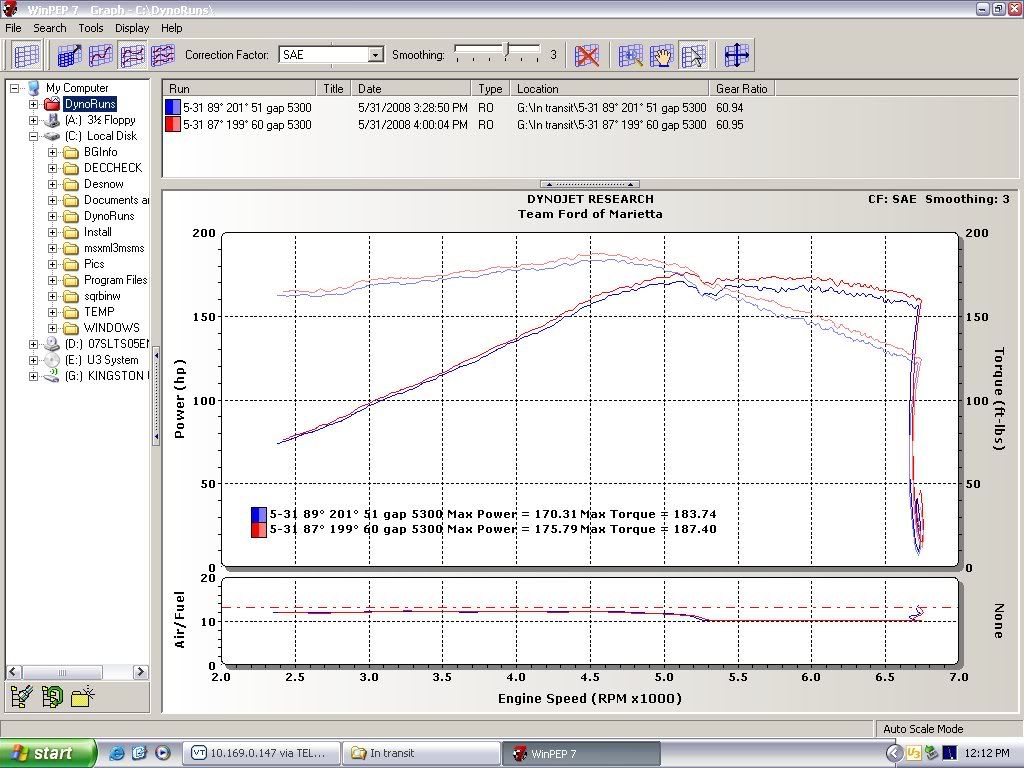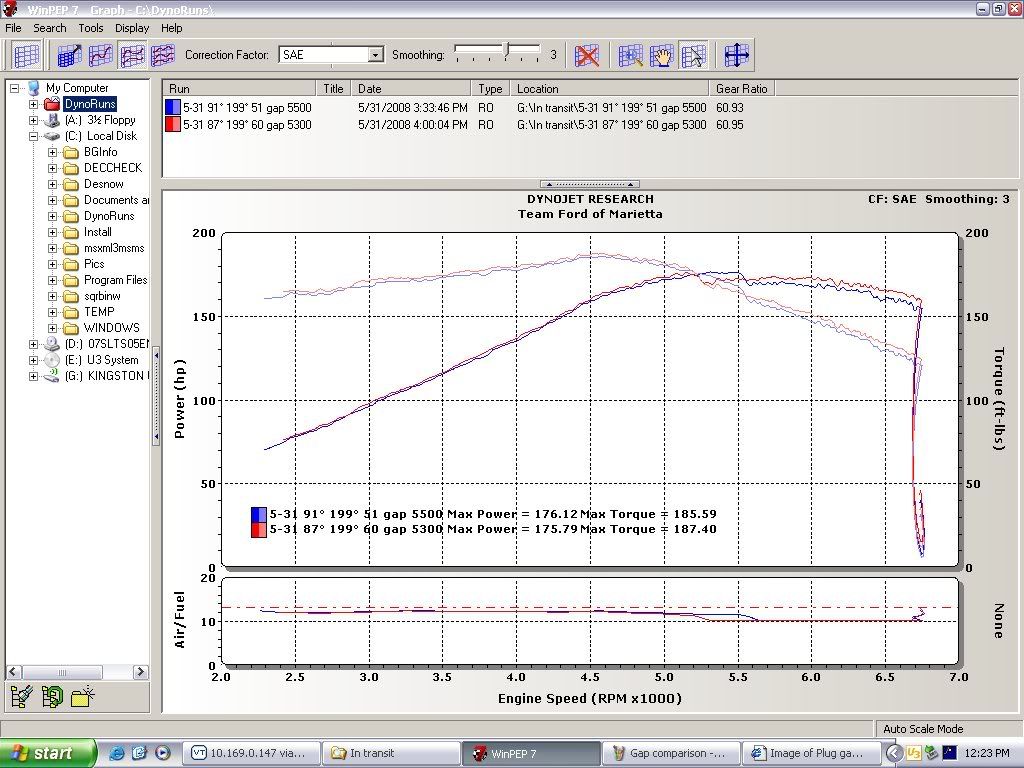SicSE
Veteran CEG'er
Pics pretty much speak for themselves. Gap is in inches, I just shortened .051" & .060" to, 51 & 60.






thats where it decides to go pig rich. IIRC hes running a 3L with an SE PCM and no tune.What's the 5300 / 5500? Almost looks like inverted secondaries (like they're closing) then.
The reason you picked up more power is your gap made a hotter burn because your car is runnig pig rich so you are able to burn more fuel to see results. If you tune the car and lean it out you can pick up the power you are losing bigtime. joey
My full-rich condition is not "enabling me to burn more fuel". My A/F goes full-rich when the PCM sees the problem and from that point on, power drops dramatically. The power gains shown are mostly from the increased gap, (bigger spark = bigger bang), and possibly some IAT influence.because your car is runnig pig rich so you are able to burn more fuel to see results.
No doubt... though that may not fix the fault that is causing the full-rich condition. Which would put me back at square one.If you tune the car and lean it out you can pick up the power you are losing bigtime. joey
My full-rich condition is not "enabling me to burn more fuel". My A/F goes full-rich when the PCM sees the problem and from that point on, power drops dramatically. The power gains shown are mostly from the increased gap, (bigger spark = bigger bang), and possibly some IAT influence.
No doubt... though that may not fix the fault that is causing the full-rich condition. Which would put me back at square one.
A larger spark helps creat a larger flame-front, therefor better burn... it's nothing to do with time - electrons travel at nearly the speed of light so time is not an issue with spark.bigger spark means less time from spark to ignition. the power your picking up is because of that time difference. when the PCM stops advancing the ignition, the larger gap makes up for it slightly, giving you more power.
Okay, so let's debate. A few questions about your idea of the cause here;the fault thats causeing your full rich condition is your untuned SE PCM with a 3L. you need to get it tuned before you damage the internals.
you dont get a flame front until the initial ignition reaches a certain size (.100 IIRC) the larger gap means its already closer to that size, thus the time to flame front is reduced by a few milliseconds (which is all a few degrees of timing will change it anyways)A larger spark helps creat a larger flame-front, therefor better burn... it's nothing to do with time - electrons travel at nearly the speed of light so time is not an issue with spark.
Okay, so let's debate. A few questions about your idea of the cause here;
If it's just the PCM programming, why does it happen at different times on different runs?
Why is full-rich initiated at different RPM's, vehicle speed, MAF voltage, barometric pressure, IAT's, and ECT's?
What would be the logic behind programming a PCM to randomly initiate dumping as much fuel as the system could squirt out?
Fact is that no one has proven one way or another, exactly what causes SE PCM's to do this on 3L swaps.
IMO, a fault of some sort, (most likely detonation), is the root cause, NOT the PCM or prgramming contained therein. Support of this theory is witnessed by the drop in power just before the onset of the full-rich condition. The PCM sees the fault and initiates the full-rich fuel strategy to protect the engine from damage. This theory steps right in line with PCM programming and engine control strategy. Whereas the "PCM is the root cause" theory does not have any supporting data, and does not fit in with PCM programming and engine control strategy.
Agreed. I've bought into the detonation theory... but buying into it & proving it are different animals. I'm going to be experimenting with the knock sensor this upcoming week or weekend. I'm going to prove or disprove this if it kills me.it did this because the cylinder temps were getting hotter on each run, likely due to detonation.
I'm running 1 step colder plug. I wasn't getting a very "happy" idle with the plug that's 2 steps colder, PLUS the problem still occured.what plugs are you running? what octane fuel?
That's a sad prospect for me, but one that's definitely to be considered. Worst part is... it's probably true. :blackeye:it could be that you upped the compression to much for the SE PCM to handle without detonation occuring.
I can see them fine.Sicse can you repost those pics i cant see them i think they were deleted?
I can see them fine.
